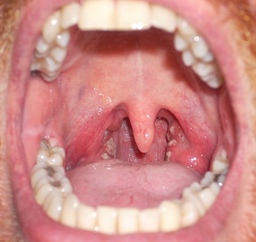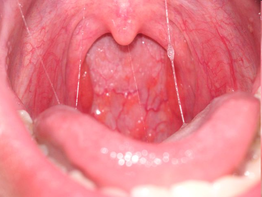|
|
Sore Throatsore throat - definitionIt is a condition characterized by scratchiness, irritation or painful sensations of the throat that often worsens as a patient tries to swallow.
It is a symptom of a viral or bacterial infection, such as common cold. The disorder is also referred to as Pharyngitis. However, Pharyngitis or inflammation of the throat (pharynx) is a separate condition of which sore throat is the main symptom. sore throat - causesThe majority of cases of sore throat result from infection by viruses that are responsible for flu (influenza) and common cold. In less common cases, soreness of throat occur due to bacterial infections.
The causes of this disorder are categorized into three types:
sore throat - symptomsThe symptoms of this disorder may vary on the basis of the underlying cause. The typical signs and symptoms of the disease, as experienced by most sufferers, usually include:
sore throat - diagnosisThe diagnosis of this disease usually begins with a physical examination, whether for children or adults. This may be followed up by other exams, such as:
sore throat - treatmentSore throat resulting from a bacterial infection is treated with antibiotic drugs. The most common form of antibiotic remedy involves oral intake of Penicillin for 10 days, which is effective for strep throat infections. Those allergic to Penicillin are prescribed an alternative drug. Patients must take the full course of antibiotic medications to have the infection go away completely. Failure to do so might make the infection recur.
In cases where the condition is caused by factors other than viral or bacterial infection, treatment consists of curing the underlying cause. sore throat - home remediesThe common home remedies for this condition include the following:
sore throat - preventionThe best prevention for sore throat is to maintain good hygiene, so as to avoid contracting the germs that lead to bacterial and viral infections causing soreness of throat. The preventive measures include:
sore throat - picturesThe images here would prove useful to you in understanding this condition.
|
Search the web


Custom Search


